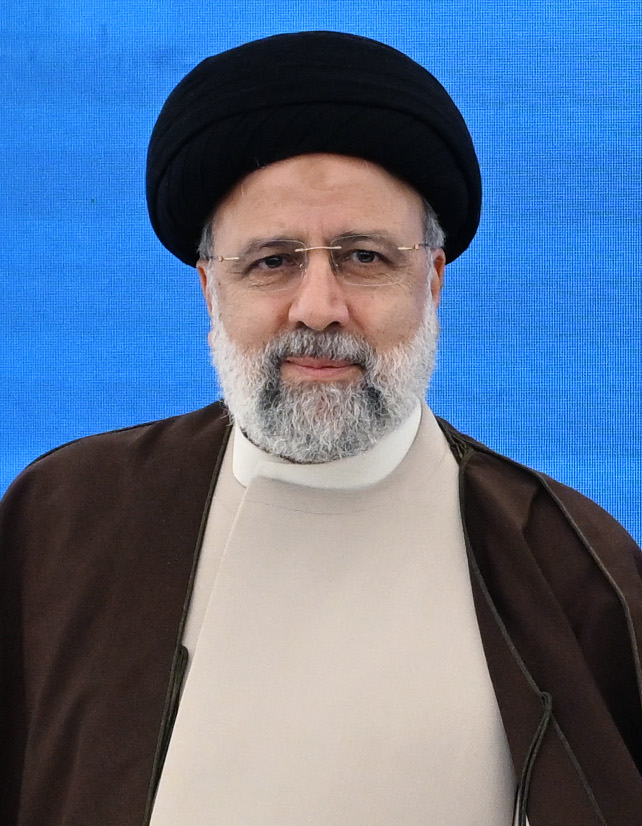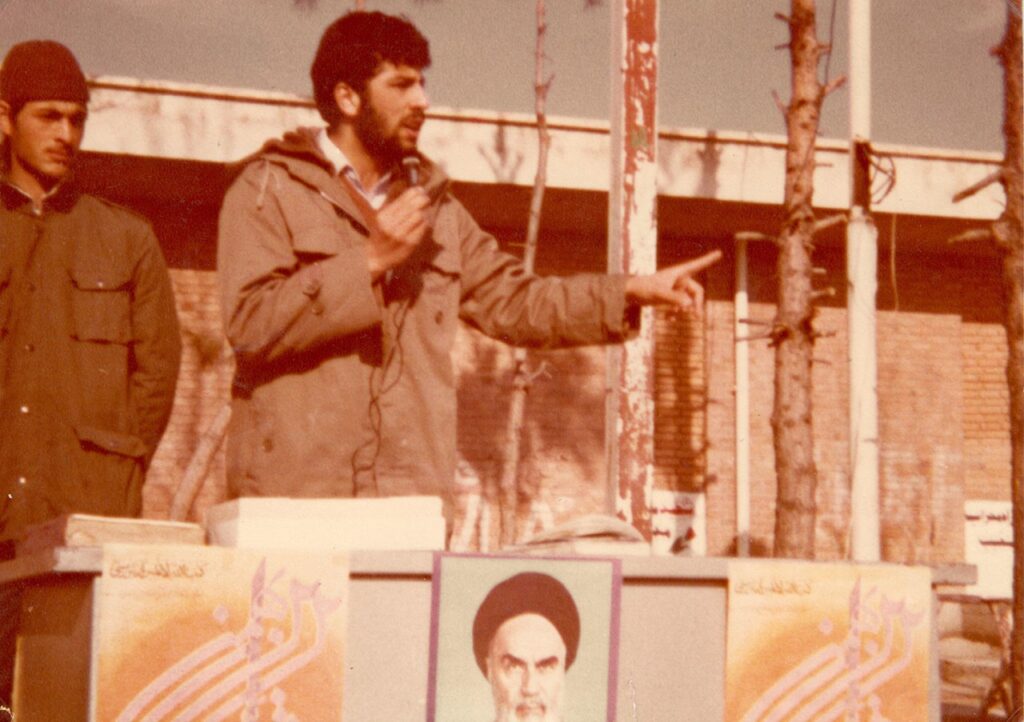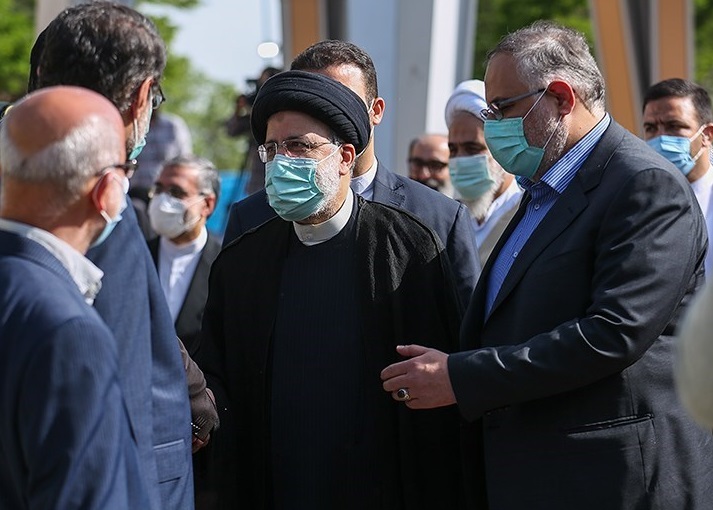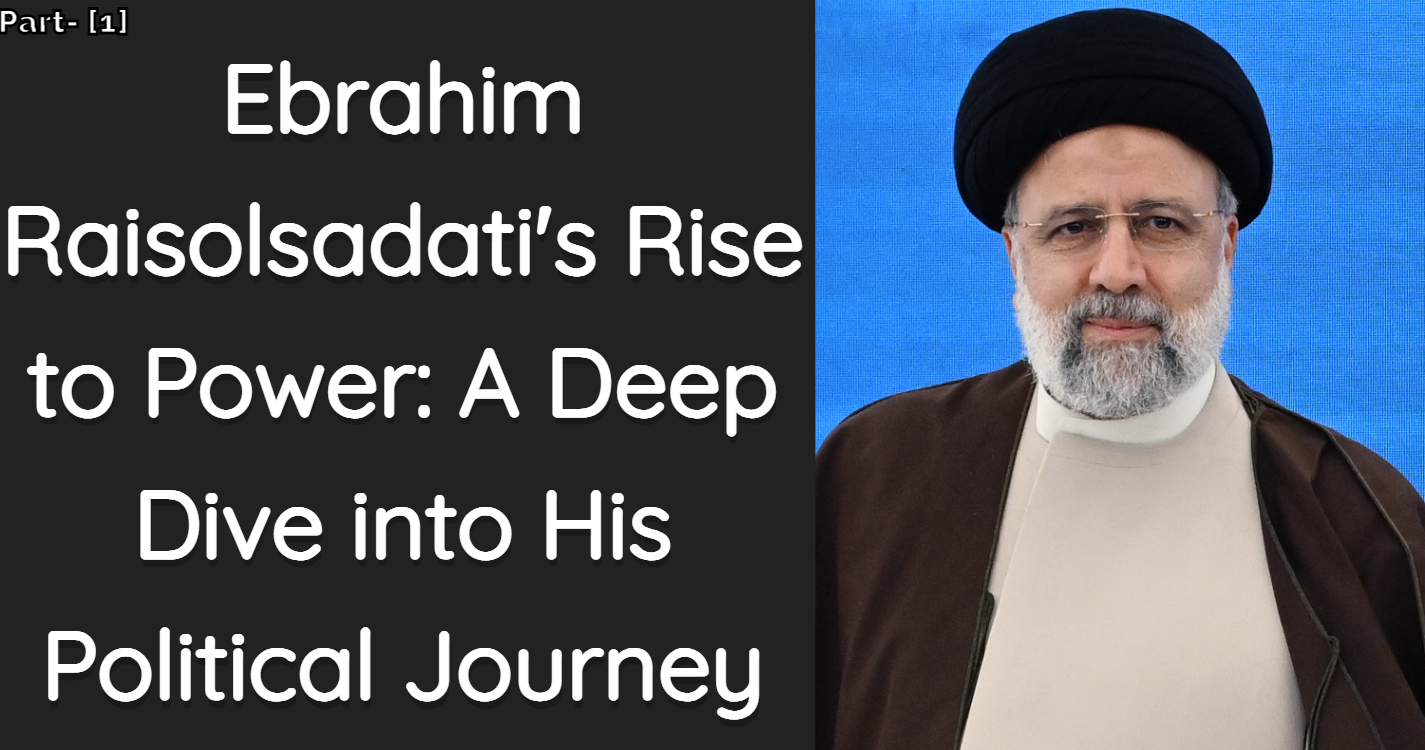
ابراهیم رئیسی
Ebrahim Raisolsadati, born on December 14, 1960, and widely known as Ebrahim Raisi, was an influential Iranian politician who held the office of the eighth president of Iran from 2021 until his untimely death in a helicopter crash in 2024. As a Muslim jurist, Raisi was affiliated with the Principlist political faction.
Raisi was married to the daughter of Ahmad Alamolhoda, the prominent Mashhad Friday prayer leader and Grand Imam of the Imam Reza shrine. He began his clerical education at the age of 15. Following the 1979 Iranian Revolution, Raisi held various roles within Iran’s judiciary, including the Prosecutor of Karaj, the Prosecutor of Hamadnd both the Deputy Prosecutor and the Prosecutor of Tehran. Notably, he was involved in the Tehran branch of the controversial “1988 Iran Death Commission,” which, under the orders of Grand Ayatollah Khomeini, oversaw the execution of numerous political prisoners. This earned him the notorious nickname “Butcher of Tehran.” In 1988, international bodies like the United Nations special rapporteurs accused him of crimes against humanity for his involvement in these executions.
Raisi’s judicial career included positions such as Deputy Chief Justice (2004–2014), Attorney General (2014–2016), and Chief Justice (2019–2021). He was also elected to the Assembly of Experts representing South Khorasan Province in the 2006 election. Additionally, from 2016 to 2019, Raisi served as the Custodian and Chairman of Astan Quds Razavi, an influential charitable foundation.
Ebrahim Raisi first ran for the presidency in 2017 as the candidate for the conservative Popular Front of Islamic Revolution Forces, but he was defeated by the moderate incumbent, President Hassan Rouhani, who secured 57% of the vote to Raisi’s 38%. Raisi made a second bid for the presidency in 2021, this time winning with 63% of the votes, succeeding Rouhani. However, many observers believed that the 2021 Iranian presidential election was rigged in Raisi’s favor, as he was seen as an ally of and potential successor to the Supreme Leader of Iran, Ali Khamenei.
Known for his hardline stance in Iranian politics, Raisi’s presidency was marked by several significant events and policies. His administration faced a stalemate in negotiations with the United States over the Joint Comprehensive Plan of Action (JCPOA). In late 2022, Iran witnessed widespread protests following the death of Mahsa Amini on September 16. Under Raisi’s leadership, Iran escalated its uranium enrichment activities, restricted international inspections, and joined international groups such as the Shanghai Cooperation Organization (SCO) and BRICS.
Additionally, Raisi’s government supported Russia during its invasion of Ukraine and launched a missile and drone attack on Israel amid the Gaza conflict. Iran continued to provide support to proxy groups, including Hezbollah and the Houthi movement, furthering its influence in the region.
Early Life and Education
Ebrahim Raisi was born on December 14, 1960, in the Noghan district of Mashhad into a clerical family. His father, Seyed Haji, passed away when Raisi was only five years old.
Raisi completed his primary education at Javadiyeh School before beginning his studies at the Hawza, an Islamic seminary. In 1975, he advanced his religious education by attending Ayatollah Boroujerdi School in Qom Seminary. Raisi has claimed to have obtained a doctorate in private law from Motahari University, although this claim has been met with some skepticism and dispute.
Clerical Credentials
Ebrahim Raisi began his studies at the Qom Seminary at the age of 15. He initially attended the Navvab School for a brief period before moving on to Ayatollah Sayyed Muhammad Mousavi Nezhad’s school, where he both studied and taught other students. In 1976, Raisi continued his education at Ayatollah Borujerdi School in Qom.
Throughout his studies, Raisi was taught by several prominent clerics, including Seyyed Hossein Borujerdi, Morteza Motahhari, Abolghasem Khazali, Hossein Noori Hamedani, Ali Meshkini, and Morteza Pasandideh. He completed his “Kharej-e-Feqh” (external Fiqh) studies under Seyyed Ali Khamenei and Mojtaba Tehrani. However, as noted by Alex Vatanka of the Middle East Institute, Raisi’s exact religious qualifications have been a point of contention.
At one time, Raisi referred to himself as “Ayatollah” on his website. This claim came under scrutiny from Iranian media, which highlighted his lack of formal religious education and credentials. Following this criticism, Raisi ceased using the title “Ayatollah” and instead referred to himself as “Hojat-ol-Islam,” a clerical rank just below Ayatollah.
Nevertheless, shortly before the 2021 presidential election, Raisi once again declared himself an Ayatollah. Despite this, the decree from Supreme Leader Ali Khamenei appointing him as President refers to him as “Hojat-ol-Islam.”
Judicial Career
Early Years
In 1981, Ebrahim Raisi began his judicial career when he was appointed as the prosecutor of Karaj. Shortly thereafter, he was also appointed as the Prosecutor of Hamadan, serving both positions simultaneously despite the significant distance of over 300 kilometers between the two cities. After four months, his responsibilities expanded as he was appointed the Prosecutor of Hamadan Province.
Tehran Deputy Prosecutor
In 1985, Raisi’s career advanced further when he was appointed as the Deputy Prosecutor of Tehran, prompting his move to the capital. By early 1988, he had caught the attention of Ruhollah Khomeini, the Supreme Leader of Iran at the time. Khomeini granted Raisi special provisions, independent from the judiciary, to address legal issues in several provinces, including Lorestan, Semnan, and Kermanshah. This appointment marked a significant step in Raisi’s judicial career, highlighting his rising influence within the Iranian legal system.
1988 Executions
Main Articles: 1988 Executions of Iranian Political Prisoners and Trial of Hamid Nouri
As the deputy prosecutor general of Tehran, Ebrahim Raisi was a member of Tehran’s “death commission” during the 1988 executions of Iranian political prisoners. His involvement in these executions came to light in 2016 when Hussein-Ali Montazeri released an audio recording of an August 1988 meeting of the Tehran “death committee.” In a 2018 lecture, Raisi did not deny his presence at the 1988 meeting. According to Amnesty International, during the lecture, Raisi referred to the killings as “one of the proud achievements of the system.” This earned him a reputation as a hanging judge and the nickname “Butcher of Tehran.”
Other notable members of the commission included Morteza Eshraghi (Prosecutor of Tehran), Hossein-Ali Nayeri (Judge), and Mostafa Pourmohammadi (MOI representative in Evin). The names of Eshraghi and Nayeri were mentioned in Khomeini’s order. While Pourmohammadi denied his role, Raisi did not comment publicly on the matter. Due to the involvement of this prosecution committee in thousands of executions, it has been informally called the “death committee.”
The 1988 executions of Iranian political prisoners were a series of state-sponsored executions that began on July 19, 1988 and lasted for approximately five months. The majority of those executed were supporters of the People’s Mujahedin of Iran, though supporters of other leftist factions, including the Fedaian and the Tudeh Party of Iran (Communist Party), were also killed. According to Amnesty International, “thousands of political dissidents were systematically subjected to enforced disappearance in Iranian detention facilities across the country and extrajudicially executed under an order issued by the Supreme Leader of Iran and implemented across prisons in the country.” Many of those killed during this time were subjected to torture and other cruel, inhuman, or degrading treatment or punishment. Due to the large number of prisoners, they were loaded into forklift trucks in groups of six and hanged from cranes at half-hour intervals.
The killings have been described as an unprecedented political purge in modern Iranian history, both in scope and coverup. The exact number of prisoners executed remains unknown, with various sources providing different estimates. Amnesty International, after interviewing dozens of relatives, put the number in the thousands. Hussein-Ali Montazeri, then-Supreme Leader Ruhollah Khomeini’s deputy, estimated the number to be between 2,800 and 3,800 in his memoirs. Human Rights Watch estimates the number to be between 2,800 and 5,000 people. Amnesty International describes the state’s refusal to provide families with the location of the mass graves of their loved ones as “ongoing crimes against humanity.”
Senior Positions

After the death of Ayatollah Khomeini and the election of Ali Khamenei as the new Supreme Leader, Ebrahim Raisi was appointed Tehran Prosecutor by the newly appointed Chief Justice, Mohammad Yazdi. He held this office from 1989 to 1994. In 1994, he became the head of the General Inspection Office.
From 2004 to 2014, Raisi served as the First Deputy Chief Justice of Iran, appointed by Chief Justice Mahmoud Hashemi Shahroudi. He retained this position during Sadeq Larijani’s first term as Chief Justice. In 2014, Raisi was appointed Attorney-General of Iran, a position he held until 2016 when he resigned to become Chairman of Astan Quds Razavi. Additionally, he served as a Special Clerical Court Prosecutor from 2012 to 2021 by the order of Supreme Leader Ali Khamenei.
Other Positions
Raisi was a member of the board of trustees for the Execution of Imam Khomeini’s Order for ten years, appointed by Seyyed Ali Khamenei. He also served on the “Supreme Selection Board” and was the founder of the “Fatemeh Al-Zahra Seminary” in Tehran. He was the first secretary of the headquarters for reviving the enjoining of good and forbidding of wrong in the country. He was the Prosecutor of Hamadan Province from 1982 to 1984.
Raisi’s other executive and oversight responsibilities include memberships in the “Supreme Council of Cyberspace,” the “Monetary and Credit Council,” and the “Anti-Corruption Headquarters.”
Astan Quds Chairmanship
Ebrahim Raisi became the chairman of Astan Quds Razavi on March 7, 2016, following the death of his predecessor, Abbas Vaez-Tabasi. He held this position until 2019. Raisi was only the second person to serve in this role since 1979. In his appointment order, Supreme Leader Ali Khamenei highlighted two key responsibilities for Raisi: serving the pilgrims of the holy shrine, particularly the poor, and aiding the local communities, especially the impoverished and dispossessed.
2017 Presidential Election

In February 2017, Ebrahim Raisi was named one of the presidential candidates for the Popular Front of Islamic Revolution Forces (JAMNA). His candidacy was also backed by the Front of Islamic Revolution Stability. On April 6, 2017, Raisi officially announced his nomination, stating that it was his “religious and revolutionary responsibility to run,” emphasizing the need for “fundamental change in the executive management of the country” and a government that “fights poverty and corruption.” He registered his candidacy on April 14, 2017, at the Ministry of Interior, asserting the importance of implementing citizenship rights beyond merely writing acts.
On May 15, 2017, conservative candidate Mohammad Bagher Ghalibaf withdrew his candidacy in favor of Raisi. There was speculation that Ghalibaf would become Raisi’s first vice president if Raisi were elected. The two candidates also appeared together at a campaign rally in Tehran.
When the election results were announced, Raisi received 15,786,449 out of 42,382,390 votes, amounting to 38.30% of the total. He lost to the incumbent president, Hassan Rouhani, and ranked second in the election. Raisi did not congratulate Rouhani on his re-election and requested that the Guardian Council investigate alleged “violations of the law” before and during the elections, submitting 100 pages of documentation to support his claims.
Presidency (2021–2024)
2021 Presidential Election
In 2021, Ebrahim Raisi ran again for the presidency of Iran and emerged victorious. The election saw a turnout of 48.8%, with Raisi capturing 63% of the vote. Out of 28.9 million votes cast, approximately 3.7 million were not counted, mostly due to being blank or considered invalid protest votes. Many observers alleged that the election was rigged in favor of Raisi.
Nearly 600 candidates, including 40 females, initially registered for the election. However, only seven men were approved by the Guardian Council, an unelected body responsible for vetting candidates based on their qualifications. Three candidates withdrew before polling day. Reformist candidate Mohsen Mehralizadeh, who withdrew, hinted that the election outcome was predetermined, suggesting that the ruling clerics orchestrated the process to favor a specific candidate.
Tenure

Raisi officially assumed office as the President of Iran on August 3, 2021, following a decree issued by Supreme Leader Ali Khamenei. In his inaugural speech, Raisi outlined his government’s objectives, including efforts to lift the sanctions imposed by the United States while asserting Iran’s sovereignty over its economic policies. He was sworn in before the Islamic Consultative Assembly on August 5, attended by approximately 260 officials from Iran and other countries. Raisi emphasized Iran’s role in stabilizing the Middle East, resisting foreign pressure, and expanding diplomatic relations, particularly with neighboring countries. He pledged to support diplomatic initiatives aimed at lifting American sanctions and assured that Iran’s nuclear program was solely for peaceful purposes. Additionally, he promised to improve Iranians’ quality of life and defend human rights.
Shortly after taking office, Raisi appointed Mohammad Mokhbar, head of the Execution of Imam Khomeini’s Order foundation, as the First Vice President of Iran on August 8. Gholam-Hossein Esmaeili, a former judiciary spokesman, was appointed as Raisi’s chief of staff. On August 11, Raisi nominated Masoud Mir Kazemi, former Minister of Petroleum and Minister of Commerce, as a vice president and head of the Plan and Budget Organization. He also presented his cabinet nominations to the Islamic Consultative Assembly on the same day.
Raisi’s nomination of Ahmad Vahidi as Minister of Interior sparked strong condemnation from Argentina and Israel. Vahidi, wanted by Argentina under an Interpol red notice for alleged involvement in the 1994 AMIA bombing in Buenos Aires, caused diplomatic tensions. Argentina’s foreign ministry denounced Vahidi’s appointment as an affront to justice and the victims of the terrorist attack.

On August 20, Raisi appointed Mohammad Hosseini, former Minister of Culture, as vice president for parliamentary affairs. Eighteen out of nineteen of his cabinet nominees were approved by the Islamic Consultative Assembly on August 25, with one nominee rejected. Many of his ministerial choices were sanctioned by the United States, and several had backgrounds in the Islamic Republic of Iran Armed Forces.
On August 25, Raisi appointed former IRGC commander-in-chief Mohsen Rezaee as vice president for economic affairs and secretary of the Supreme Council for Economic Coordination and the Iranian government’s Economic Committee. The appointment drew renewed condemnation from Argentina due to Rezaee’s alleged involvement in the AMIA bombing.
On September 1, Raisi appointed Ensieh Khazali, former president of Al-Zahra University, as vice president for Women and Family Affairs, and Mohammad Dehghan as vice president for legal affairs. On September 4, he announced Iran’s intention to resume talks on its nuclear program, which had stalled following his election victory, emphasizing that negotiations would not be conducted under Western pressure.
On September 5, Raisi appointed Meysam Latifi as vice president and head of the Administrative and Recruitment Affairs Organization, and Sowlat Mortazavi as vice president for executive affairs and head of the presidential administration. Farhad Rahbar, former Head of the Management and Planning Organization, was appointed as the president’s assistant for Economic Affairs. On September 12, Amir-Hossein Ghazizadeh Hashemi was appointed as vice president and head of the Foundation of Martyrs and Veterans Affairs.
During Raisi’s presidency, Iran significantly increased its importation of COVID-19 vaccines, importing over 30 million doses during the Iranian month of Shahrivar, surpassing the total imports since February 2021. On September 19, the Ministry of Foreign Affairs announced the importation of an additional 60 million vaccines.
In a pre-recorded speech to the 76th session of the United Nations General Assembly on September 21, Raisi reiterated Iran’s willingness to resume talks on its nuclear program and criticized the United States for its global hegemony and unjust sanctions against Iran.
On September 17, protests erupted across Iran following the death of Mahsa Amini, leading to widespread unrest. President Raisi pledged to establish a commission to investigate Amini’s death, but the protests continued amid allegations that law enforcement agencies were withdrawing from smaller cities due to uncontrollable rioting.
Iran’s Foreign Policy Under Raisi: A Complex Web of Alliances and Conflicts
Since taking office, Iranian President Ebrahim Raisi has navigated a delicate dance of diplomacy and confrontation on the world stage. As the Taliban took control of Afghanistan, Raisi seized the opportunity to call for a stabilized country and an inclusive government. He urged all parties to come together and establish a new administration as soon as possible.
However, Raisi’s stance on Israel was starkly different. In a September interview, he denounced the Abraham Accords and labeled Israel a “false regime.” He threatened major Israeli cities, including Tel Aviv and Haifa, and reiterated that the only solution to the Israeli-Palestinian conflict lies in the establishment of a Palestinian state from the Jordan River to the Mediterranean Sea.
Raisi’s meeting with Syrian President Bashar al-Assad focused on strengthening strategic ties between Iran and Syria. He also criticized the Saudi-led blockade of Yemen and called for an immediate ceasefire.
In March 2022, Raisi pledged his support for Russia following the invasion of Ukraine, sparking concerns about Iran’s allegiances in the region.
The stalled negotiations over the Joint Comprehensive Plan of Action (JCPOA) with the US continued under Raisi’s presidency, with him accusing American officials of stalling and dragging their feet.
In February 2023, Raisi visited China, where he signed 20 cooperation agreements with Chinese leader Xi Jinping and pledged to boost relations. This move led to a historic agreement between Saudi Arabia and Iran to restore diplomatic ties cut off in 2016.
Raisi’s comments on Israel have been particularly contentious. He praised Hamas’ October attacks on Israel, stating that they would ultimately lead to Israel’s downfall. He condemned Israel’s actions in the Gaza Strip during the Israel-Hamas war and accused the country of committing genocide against Palestinians with the support of the US and certain European nations.
In January 2024, Raisi predicted that the Israel-Hamas war would result in “Israel’s destruction.” His words sparked widespread concern about Iran’s role in fanning the flames of conflict in the region.
Despite these tensions, Raisi’s foreign policy has been marked by controversy at home. In December 2023, he canceled a trip to Geneva due to accusations surrounding his involvement in human rights abuses during his time as a judge in 1988. The controversy threatens to tarnish his reputation on the international stage.
As Iran navigates this complex web of alliances and conflicts, one thing is clear: under President Raisi’s leadership, Tehran will not shy away from asserting its influence on the global stage.
[To be Continued in Next Blog]

